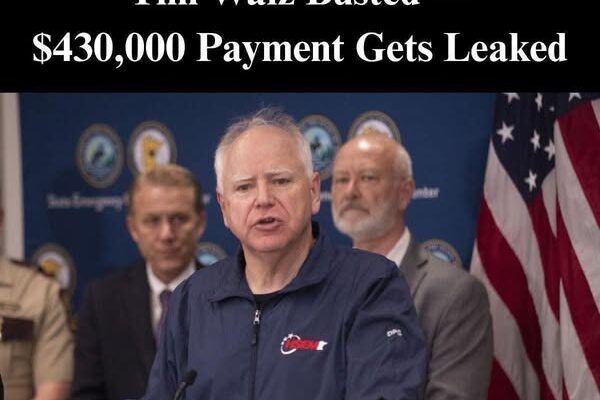Minnesota Governor Tim Walz is facing sharp criticism from Republicans after reports revealed he spent nearly $430,000 of taxpayer dollars on outside legal counsel to prepare for his testimony before Congress on sanctuary-city policies.
According to invoices obtained by the Star Tribune, Walz’s administration hired the prestigious law firm K&L Gates between April and June 2025 to assist with preparation for a high-profile hearing before the Republican-led U.S. House Oversight Committee. The firm’s attorneys billed an average of $516 per hour, with May alone generating an eye-popping $232,000 in fees. The entire $430,000 tab was paid via a transfer from Minnesota’s general fund, authorized by the Legislative Advisory Commission, which oversees unexpected state expenditures.
Walz’s team defended the decision, saying that while the state attorney general’s office initially provided legal guidance, the intense pressures and unique complexities of facing a partisan congressional inquiry required specialized outside expertise. Preparing for aggressive questioning on a politically charged topic like sanctuary cities, they argued, demanded a thorough legal strategy to protect Minnesota’s interests and avoid potential missteps that could be exploited by opponents.
But Republican lawmakers were quick to condemn the expense as wasteful and unnecessary. Representative Jim Nash pointed out that Minnesota’s attorney general already has a skilled legal team capable of handling such matters. Representative Harry Niska went further, dismissing the legal fees as “overpriced PR consulting” and accusing Walz of prioritizing national political ambitions over the immediate needs of Minnesota residents.
Walz pushed back, labeling the congressional hearing a partisan “political stunt” designed to embarrass Democratic governors who support immigrant-friendly policies. His office framed the hearing as grandstanding with no substantive new revelations, aimed solely at scoring political points.
This controversy has ignited a wider debate over public spending on legal and communication support in federal investigations. While Walz’s bill has drawn Minnesota scrutiny, similar expenditures have surfaced nationwide. For instance, Boston Mayor Michelle Wu recently authorized up to $650,000 for outside counsel in a comparable congressional inquiry, and Denver Mayor Mike Johnston reportedly spent $250,000 preparing for testimony on urban crime.
Supporters argue that Walz’s spending aligns with a growing trend among officials seeking comprehensive legal protection amid highly charged political probes. They say the stakes are high, with risks of legal liability, reputational damage, and policy setbacks, making outside expertise not just prudent but necessary.
Yet fiscal conservatives and watchdog groups warn of a troubling pattern: public funds increasingly funneling into political defense rather than essential public services like education, healthcare, and infrastructure. They caution that unchecked, these costs could balloon, turning taxpayer money into a bankroll for political theater.
In response, some Minnesota lawmakers are pushing for legislation to limit future governors’ use of outside legal counsel for congressional or political testimony, potentially requiring prior legislative approval or mandating personal funding for non-criminal defense when hearings appear politically motivated.
As the debate rages on, Minnesotans are left grappling with where to draw the line between legitimate government defense and political maneuvering. For Governor Walz, this legal spending scandal spotlights the broader national tensions over immigration policy, executive accountability, and the skyrocketing price of political battles in today’s polarized environment.
Whether this controversy will impact Walz’s political future—at home or on a larger stage—remains uncertain. But it serves as a vivid case study in the complex challenges modern leaders face balancing governance, legal defense, and public trust under relentless partisan scrutiny.
